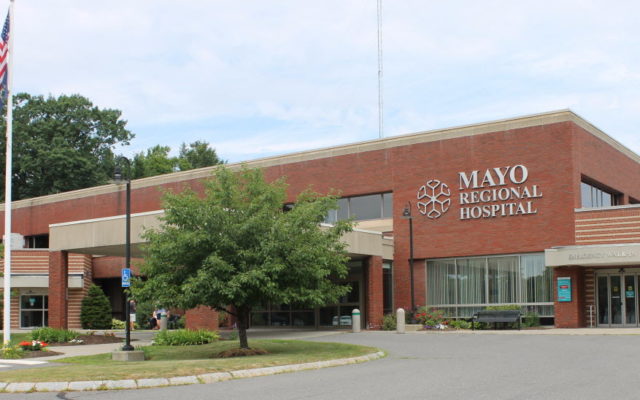
Tele-Emergency technology goes live at Mayo Regional Hospital
DOVER-FOXCROFT — Mayo Regional Hospital and Dartmouth-Hitchcock held a “Go Live” event on Oct. 29 to launch the Tele-Emergency program. Tele-Emergency services are now offered, 24 hours a day, seven days a week in the Mayo Regional Hospital Emergency Department in addition to standard emergency care services.
The Go Live event included a tour and demonstration of the technology, remarks by Marie Vienneau, BSN, MHA, NE-BC, FACHE, president and CEO of Mayo Regional Hospital, and participation from Dartmouth-Hitchcock representatives.
Mayo Regional Hospital currently provides emergency services to over 11,000 patients in the community each year. Open 24 hours a day, Mayo’s Emergency Department is equipped to handle any patient that comes through its door. Access to a second set of eyes and ears can be beneficial in critical cases. The new Tele-Emergency service will provide extra support to Mayo’s emergency providers and nurses when needed.
At the push of a button, Mayo Regional’ Hospital’s team now has immediate, interactive audiovisual access to a group of Dartmouth-Hitchcock physicians and nurses who specialize in emergency medicine. Dartmouth-Hitchcock Tele-Emergency currently provides support to seven other hospitals in Northern New England. The secure telemedicine connection is made using a high-definition, live, two-way connection mounted in Emergency Department patient rooms.
The goal, according to Dr. Kevin Curtis, medical director of the Dartmouth-Hitchcock Center for Telehealth, is to “help deliver outstanding care to the Northern New England region independent of patient location. We are thrilled to join a tremendous bedside team at Mayo Regional and assist the providers, staff, and most importantly, patients, in whatever manner needed.”
Dr. David McDermott, medical director of Mayo’s Emergency Department, reflected that “Mayo has a long tradition of excellence in Emergency Medicine being provided by our team of highly qualified Emergency Medicine Physician Assistants. This model will help ensure the success of that staffing model into the future by bringing Board-Certified Emergency Physicians to the bedside electronically to work with the other members of our team in the care of our most serious patients.”